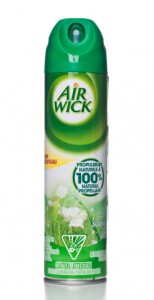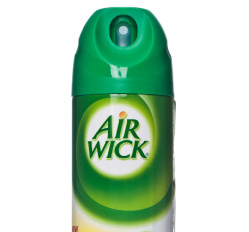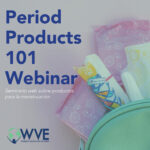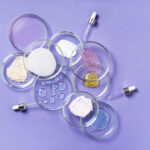Air Wick National Park Collection: Um, What?
 |
|
Cassidy Randall |
In public places all over the country, the concept of scent marketing – using an evocative scent to enhance a space and boost a brand – has exploded. Abercrombie & Fitch sprays its signature cologne every few minutes in its stores. Hotels flood their lobbies with woodsy or high-class scents. Even some hospitals are getting in on the trend, spraying ambient scents into emergency rooms in an attempt to reduce employee stress.
Now, scent marketing has reached a new level of bizarre. Reckitt Benckiser, makers of Air Wick, recently partnered with the National Park Foundation on a new line of air fresheners inspired by “the beauty and majesty” of our national parks. The Air Wick website proudly states, “The National Park Collection from Air Wick allows families to bring home vibrant scents that were inspired by the nation’s most beautiful parks, all without ever having to leave their homes.”
Um, what? We’re supposed to substitute indoor air pollution from secret toxic chemicals in air fresheners for the actual experience of fresh air in a national park?
It’s great that Reckitt Benckiser is feeling this surge of national pride by giving some of the proceeds from the National Park Collection back to the Foundation. But what’s the true cost of substituting air fresheners for the real thing?
First, we have no idea what’s actually in Air Wick, because Reckitt Benckiser keeps fragrance ingredients a secret. This is a big problem when it comes to air fresheners, in which fragrance can make up 70-80% of the overall composition of the product. Here’s the grand total of what Reckitt Benckiser is willing to tell us about their fragrances:

“The ingredients that go into creating the perfect fragrance are not just any ingredients. They are carefully chosen from a palette of a little over 3,000 materials reviewed and approved by the International Fragrance Association, known as IFRA.”
Huh. Guess what’s on that IFRA list? Cancer-causing chemicals, hormone disruptors, reproductive toxins, triclosan, and allergens. Air Wick could contain any of those toxic chemicals in its National Park Collection.
Speaking of allergens, here’s a fun fact: Reckitt Benckiser discloses 26 known fragrance allergens directly on product labels in the European Union so that people who are sensitive to them can avoid them. But they don’t disclose allergens in the exact same products here in the U.S. because they’re not required to. If the company really wanted to show some national pride, one would think they’d start by giving their U.S. customers the same health information they give their European customers. Especially since they have a company policy which commits them to apply product safety standards across all regions globally!
Second, studies are increasingly showing that chemicals in fragrance are harming our health, particularly the health of women and children.
- One study of pregnant women showed a link between the use of air fresheners and aerosol sprays and an increase in headaches and depression in the mothers, as well as ear infections and diarrhea in their babies.
- Certain hormone disrupting chemicals found in fragrance may have significant lifelong effects on reproductive health and development, like galaxolide and tonalide (detected in our blood, breast milk, and even newborns) and phthalates (linked to reproductive harm in baby boys).
- Women are 2-3 times more likely than men to suffer from fragrance allergies. Women also become sensitized to fragrance earlier in life than men.
- Girls have higher sensitization rates to fragrance allergens than boys, and studies show increasing diagnoses of allergic contact dermatitis and excema in children.
- Research indicates that the more we used fragranced products, the higher the levels of fragrance chemicals in our bodies.
For all of these reasons, the Air Wick National Park Collection from Reckitt Benckiser is just wrong. I’m offended that Reckitt would assume that it can replace the purifying experience of hiking through a pristine national park with secret toxic chemicals that could harm my health in numerous ways.
If the company wants to regain the trust of millions of consumers, it should start by being transparent about the chemicals it’s using and ensuring that they’re not linked to cancer or reproductive harm. In the meantime, I’ll spend my dollars on a trip to Yellowstone.
Want to learn more? Check out our Secret Scents campaign.







This is great. Thanks for sharing this important information – and your indignation! We need to protect ourselves from chemical fragrances, and knowledge of what we’re exposed to is the first step.
Great blog Cassidy! As someone who has been severely sensitized, I really appreciate you getting the word out about this! I have to walk out of stores sometimes because of this issue!
Scent attaches to your organs and will develop into cancers so it isn’t something we want It is as offensive as smoke and a real problem for many people We have been marketed to think we need this stuff I don’t understand hospitals except many are not clean so may want to mask smells which is all fragrance does In my mind scent free is most desirable
This is wrong on so many levels, thank you for your insightful piece on this new low in terms of polluting our air. We have no choice but to breath in this stuff if we choose or have to visit any of these public or private buildings. This is really is contamination without consent, these ‘fragrances’ can affect asthmatics, babies and children, and those sensitive to synthetic fragrances. When will people wake up to the industry brain washing of making us buy potentially harmful products as a substitute for good old fresh air? We need warnings at least on building utilising such toxic products in their air cons so we can avoid. What about those who have to work there day in and day out, surely this goes against health and safety?
How mixed up is that? Too bad the national park doesn’t want to inspire me to plant some flowers or a tree in my own backyard…
Exactly what I thought, just saw their advert. Thanks, great article. Personally I think it’s misleading enough to be banned, just like Febreze who have the nerve to say ‘breathe easy with Febreze when it’s known to cause respiratory problems.